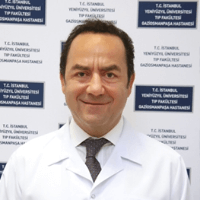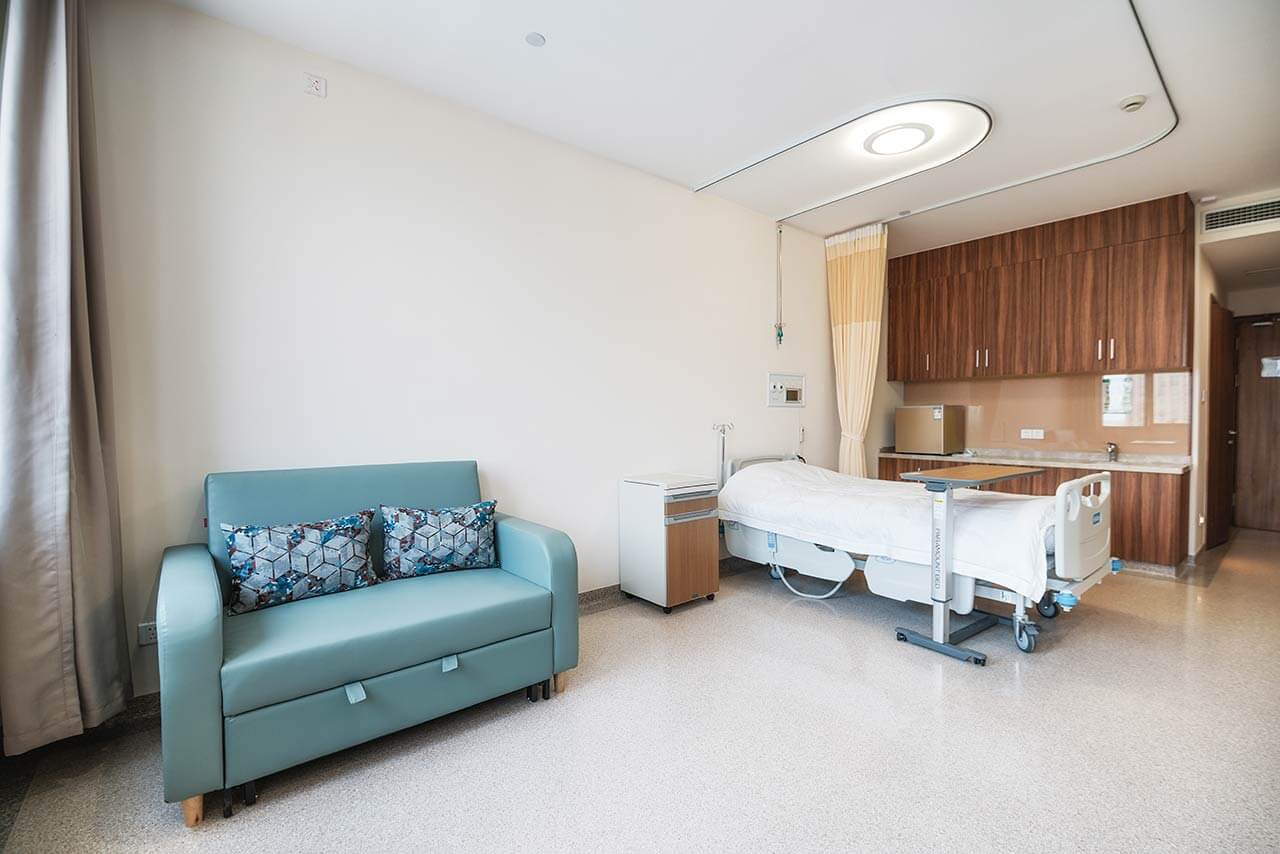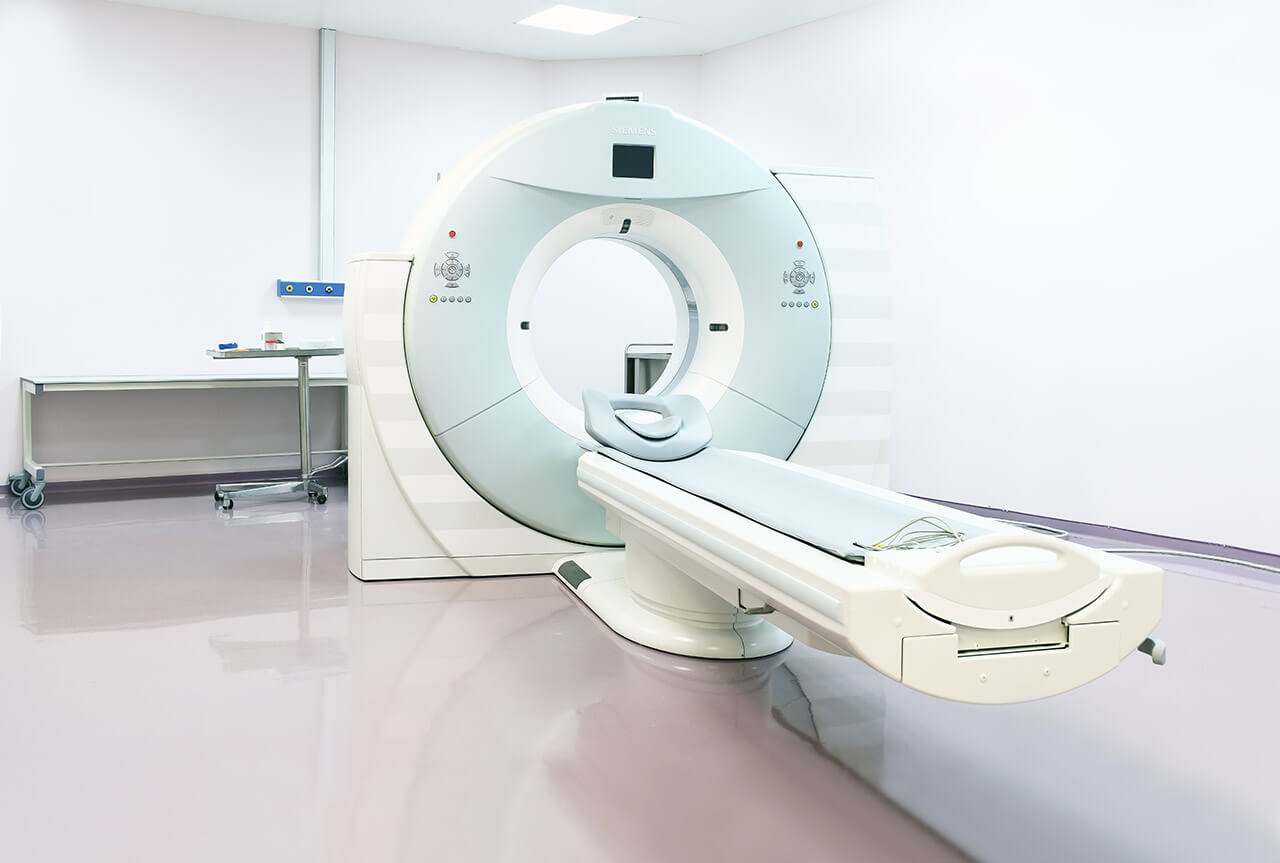
About the In Vitro Fertilization Center at Gaziosmanpasa Hospital of Yeniyuzyil University
The In Vitro Fertilization Center at the Gaziosmanpasa Hospital of Yeniyuzyil University specializes in fertility treatment. To this end, it uses one of the most modern and effective methods – in vitro fertilization (IVF) procedure. A competent medical team of the experienced obstetricians, urologists, gynecologists, specialists in reproductive medicine and specially trained nursing staff works here. The department is proud of the results of its work and annually helps many women to attain the joy of motherhood. The department is headed by Prof. Dr. med. Kutluk Oktay. The doctor has a tremendous experience in the field of his specialization, he has completed many internships in America and he is a member of numerous professional American and Turkish societies.
In vitro fertilization occurs outside the woman's body, in artificial conditions. A healthy egg and a healthy sperm cell are connected in vitro. The process results in an embryo, which is transferred to the uterine cavity, where its further natural development takes place, which ends with the birth of a healthy baby. The IVF procedure consists of the following steps:
- Ovarian stimulation. The doctor administers a drug into the woman’s body, which serves to prepare the body for the subsequent hormonal stimulation. After a short period of time, the follicles are stimulated with a drug, which increases their growth. All the manipulations are performed under ultrasound guidance.
- Follicular puncture. This is the next step towards a long-awaited pregnancy. Once the follicles reach the required size, the doctor pulls out the follicular fluid with the egg using a puncture needle. The procedure is performed with anesthesia.
- Embryo culture. For the next step, the ovules are extracted from the follicular fluid and the sperm is processed using the necessary methods. The eggs and sperm cells are placed on a nutrient medium, in an incubator, where the fertilization takes place. At this stage, the embryo growth lasts from 3 to 6 days.
- Embryo transfer to the uterine cavity. The embryos are transferred into the uterine cavity with the help of a special flexible catheter under ultrasound guidance. This procedure does not cause painful or unpleasant sensations.
- Diagnostics of pregnancy. Two weeks after the embryo transfer into the uterine cavity, a woman undergoes a hCG blood test. This is the earliest and the most reliable pregnancy test.
The in vitro fertilization is an excellent option for the following pathological conditions:
- Fallopian tube obstruction
- Impaired sperm quantity and quality
- Some hormonal disorders
- Infertility without identified causes
- Abdominal adhesions caused by endometriosis and the inability to become pregnant after treatment
- Infertility due to immunological incompatibility
- Inability to get pregnant after using other methods of artificial insemination
- Necessity for the early diagnostics of hereditary diseases in the fetus (at the embryonic stage)
- Other problems that may cause infertility
Curriculum vitae
Education and Professional Experience
- Since 2009 up to now, Consulting of students on doctoral thesis.
- Graduate Program, Department of Cell Biology and Anatomy, NYMC.
- Since 2008, Lecturer at University, Medical Endocrinology Fellowship Program.
- Faculty of Medicine, Department of Medical Endocrinology, NYMC.
- Since 2008 up to now, Reproductive Endocrinology and Infertility, Assistant Curriculum Conference.
- Department of Obstetrics and Gynecology, New York Medical College.
- 2005 - 2007 Coordinator, Reproductive Medicine Seminar Series.
- Work at the Cornell University Medical College.
- 2002 - 2005 Auditor, Obstetrics and Gynecology, MSII's.
- 2000 - 2002 University Professor of Obstetrics and Gynecology (MSII's).
- 2000 - 2001 Reproductive Endocrinology and Infertility, Assistant Curriculum Conference.
- Physician of the Department of Obstetrics and Gynecology, Brooklyn Hospital.
- 1997 - 2000 Instructor, First Stage Training, MSII's.
- 1997 - 2000 Consultant, SUNY Alumni Association MS II-IV's.
- 1996 - 1997 Lecturer, Obstetrics and Gynecology (MS II, III and IV's).
- 1994 - 1995 Lecturer, Obstetrics and Gynecology, Introduction Course.
- Work at the San Antonio University of Texas.
- 1994 - 1995 Co-ordinator, Reproductive Research Discussion Group.
Medical Activities Abroad
- 01.01.2008 Westchester Medical Center, Valhalla, NY.
- 06.18.2008 - 06.31.2010 Memorial Sloan-Kettering Hospital, New York.
- 09.01.2000 - 12.01.2007 New York Hospital Cornell, NY.
- 09.15.1997 - 10.01.2000 New York Methodist Hospital, Brooklyn, NY.
Memberships
- Society for Reproductive Research (SRR).
- American Society of Clinical Oncology (ASCO).
- Society for Assisted Reproductive Technology (SART).
- Society for Reproductive Endocrinology and Infertility (SREI).
- American Society for Reproductive Medicine (ASRM).
- American College of Obstetrics and Gynecology (ACOG).
- European Society of Human Reproduction and Embryology (ESHRE).
- Since 2012 up to now, Intellectual Property and Patent Committee, NYMC.
- Since 2010 up to now, Academic Integrity Committee, Institute of Basic Medical Sciences, NYMC.
- 2012 - 2013, 2015 Grant, Belgium.
- 2012 Grant, Israel Science Foundation.
- 2010 Grant Review Committee, Ministry of Health, Italy.
- 2005 Committee Member of the Gynecologic Research Scientific Program.
- 2005 Co-Chair, Committee on ASCO Guideline Fertility Preservation.
- 2005 - 2009 Chairman of the American Society for Reproductive Medicine.
- 2003 - 2010 European Society of Human Reproduction Endocrinology, Scientific Abstract Review Committee.
- 2003 Grant Review Committee, Israel Science Foundation.
- 2003 Grant Review Committee, Cancer Research, United Kingdom.
- 2002 - 2004 Chairman of the Steering Committee for the Protection of Fertility, Special Interest Group.
- American Society for Reproductive Medicine.
- 2002 University of Lyon, France, PhD Thesis Review Board.
- 2000 - 2002 Gynecologic Research Association, Scientific Program Committee.
Photo of the doctor: (c) Private Gaziosmanpasa Hospital




